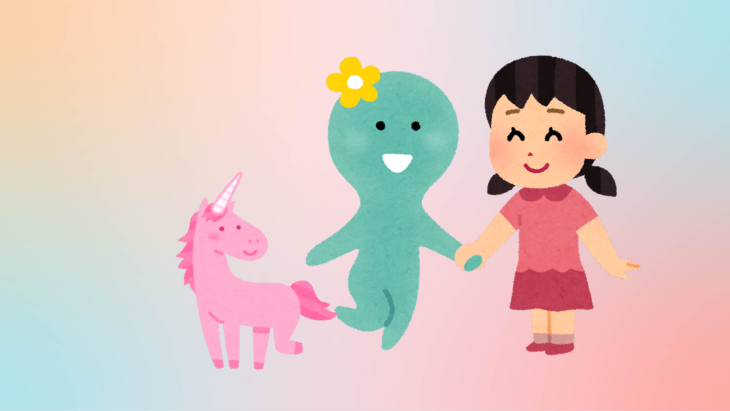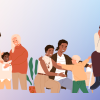Recent Posts
- Men masking mental health issues. Why is men's mental health declining in the US?
- I am hesitating on joining the armed forces! Are people in the armed forces more prone to mental health problems?
- Getting acquainted with the 7 types of anxiety disorders. What do I need to know about them?
- My husband needs to recover from alcohol dependence and mental health issues. How can I help him?
- Are there good and bad debts? And how does debt impact mental health?
Most Popular
Why do children have imaginary friends and what role does it have in childhood development?

A superhero, an animal, a fairy or any mythical creature, or even other children. These are just some of the possible forms of interpersonal relationships or friendships that a child imagines. Commonly, they are referred to as imaginary friends.
In literature, there have been depictions of these imaginary friends that are now beloved characters in books and movies. They include Winnie-the-Pooh, Hobbes, Barney the Dinosaur and The Wild Things among many others!
How common are imaginary friends and what roles do they play in a child’s development?
Research on this topic has found that almost 65% of children aged 3 and kids up to 7 years old imagine these companions, with 67% of them in human form and 19% in animal form.
In 2017, researchers compiled the primary reasons for these make-believe friends.
- A way for the a to solve problems and manage emotions. In an imaginary friendship, children usually stand in the role of the authority figure over their imaginary friends. This helps children increase their confidence, and empower them to make choices. By imagining challenging situations at play, children learn new skills.
- A companion for make-believe play. Research has shown that kids with imaginary companions are more sociable! This might be because they can engage in conversations with their made-up friends anytime.
- A way to deal with being lonely. Research has also observed that having imaginary companions is likely to happen in first-born or only children. This gives researchers a clue that children make-up these relationships to feel connected with a close friend and feel less lonely.
- A way for the child to learn about relationships, how to behave in relationships and relationship roles. Especially true in children 2-3 years old, making up an imaginary friend helps them to see themselves as an individual separate from their parents. They use this to practice their role as a friend to another in a safe and controlled setting.
- A way to explore new ideas. As children play with their imaginary friends, their ability to think of new scenarios and ways to engage in fun while being creative is enhanced.
Parents’ point of view
Should you be worried if you see your child engaged in a friendly relationship with a made-up companion? Not necessarily. With the above-mentioned benefits, having an imaginary friend is part of a normal childhood and it paves the way for development in many areas.
What should parents do? You can observe your child and monitor for desirable and undesirable behaviors. If you notice destructive or unhealthy behaviors, you can start setting up reasonable limits on how your child should interact with their imaginary friend.
Also, when a child uses the imaginary friend to avoid owning up to the consequences of their own actions, to avoid house rules, or engage in unhealthy habits, enforce firm discipline so that your child will not miss out on learning responsible behavior and accountability for their own actions.
Being open to and reasonable about your child’s imaginary companion, you also get the chance to look into your child’s current development, to have insight into their mind, and to get to know them better.
A child’s mind from birth to school age years is undergoing changes and growth in leaps and bounds. Having an imaginary companion provides children with ways to develop their emotional and problem solving skills, to manage feelings of loneliness, and grow their imagination and creativity.
Discover the next healthcare and mental health profession jobs suited for your skills and qualifications by connecting to America’s leading medical job board!








Comments